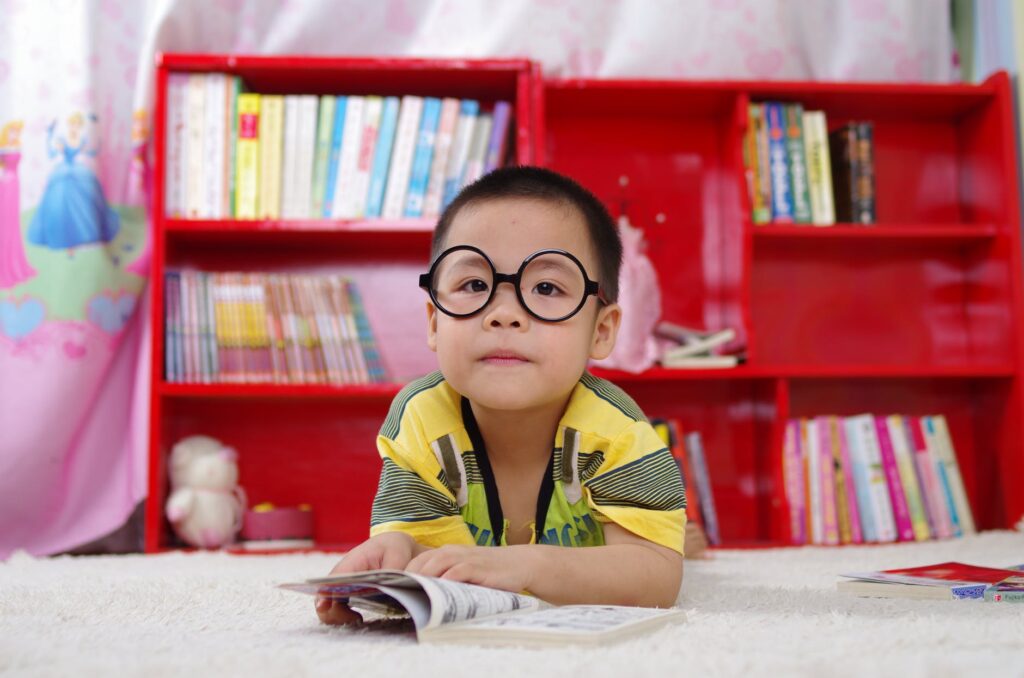Introduction
In Indian households, hand-me-downs are more than just a way to save money; they carry stories, nostalgia, and tradition. Whether it’s a baby wearing their older sibling’s tiny kurta or a teenager donning their cousin’s old hoodie, preloved clothes hold emotional and cultural significance.
While Western consumer culture often promotes the idea of “new is better,” the Indian diaspora—spread across the US, UK, Canada, Australia, and beyond—has held on to the age-old practice of passing down clothes within families and communities. But why do children, despite being surrounded by advertisements for brand-new fashion, often prefer worn-in, familiar clothing?
The answer lies in psychology, cultural upbringing, and the deep sense of comfort that preloved clothes provide. Let’s explore how children form emotional connections with clothing, the science behind why they find comfort in old fabrics, and real stories from parents who’ve witnessed their kids choosing hand-me-downs over new outfits.
1. Emotional Attachments to Clothes: More Than Just Fabric
For children, clothes aren’t just pieces of fabric—they are emotional touchpoints. A hand-me-down shirt from an older sibling or cousin often carries memories, scents, and a sense of familiarity.
The Power of Scent and Memory
In psychology, scent is known to be one of the strongest triggers of memory. A child wearing an elder sibling’s old sweater might subconsciously associate it with their presence, security, and past experiences. In the Indian diaspora, where many families live in close-knit communities, the presence of extended family members often reinforces these emotional connections.
Identity and Belonging
Wearing a sibling’s or cousin’s clothes fosters a sense of belonging. It’s a subtle way of saying, “I am like them; I am a part of something bigger.” Children often look up to their elder siblings and cousins, and wearing their clothes makes them feel closer to their role models.
For example, in many Indian households, a little boy might proudly wear his older brother’s cricket jersey, believing it carries the essence of past victories and playful memories. Similarly, a girl may cherish her elder cousin’s Anarkali suit because it reminds her of festive celebrations.
2. The Science Behind Comfort in Familiar Fabrics
The Softness of Experience
New clothes can sometimes feel stiff and unfamiliar. Fabrics become softer and more comfortable with multiple washes, making preloved clothes easier to wear. Research in sensory psychology suggests that familiar textures provide a sense of security.
In Indian households, cotton kurtas, soft dupattas, and well-worn T-shirts often feel much more comforting than crisp, store-bought alternatives. This is why a child may reject a brand-new shirt but cling to an old, faded one.
The Psychological Comfort of Familiarity
According to child development studies, consistency and familiarity reduce anxiety in young children. This is particularly relevant for children of immigrants, who often navigate dual identities—balancing the culture of their home with the Western society they grow up in.
Preloved clothes, especially those tied to family traditions, provide a grounding experience. They serve as a constant in a world that might otherwise feel ever-changing.
3. Cultural and Economic Significance in the Indian Diaspora
Hand-Me-Downs as a Tradition, Not Just Necessity
For many Indian families, passing down clothes is not just a matter of financial prudence but a tradition. Baby clothes, in particular, are often preserved and reused across generations.
In many Hindu households, it’s common to pass on the clothes of an elder child to a younger one as a form of blessing. In Sikh and Muslim communities, this practice is also prevalent, with the belief that it fosters familial bonds.
Even in well-to-do Indian families abroad, the idea of buying everything brand new is not always the norm. Many parents consciously choose to reuse clothes to avoid waste and teach children the value of sustainability.
Economic Practicality and Sustainable Living
Indian diaspora families, particularly first-generation immigrants, often prioritize financial security. Hand-me-downs help reduce unnecessary spending on children’s clothing, which they outgrow rapidly.
In recent years, sustainability has become a key concern globally. Many Indian parents abroad see hand-me-downs as an eco-friendly practice, aligning with the values of minimizing waste and conserving resources.
5. The Future of Hand-Me-Downs in a Changing World
While globalization and fast fashion have led to an increase in consumerism, many Indian families are still holding on to the tradition of hand-me-downs. With rising awareness about sustainable living, preloved clothing is no longer just about financial prudence but also about reducing waste.
Technology and the Rise of Online Clothing Swaps
In recent years, apps and community groups have emerged where Indian families living abroad exchange preloved clothes. Facebook groups, WhatsApp communities, and local Indian diaspora networks make it easier than ever to pass down clothing within trusted circles.
Educating Children About Sustainability
Many parents in the Indian diaspora are making a conscious effort to teach their kids the value of reusing clothes. Instead of treating hand-me-downs as a second-choice option, they frame them as a meaningful and eco-friendly practice.
Conclusion
Hand-me-downs are more than just clothing; they are carriers of memory, tradition, and comfort. In the Indian diaspora, where families hold onto cultural values while adapting to new environments, preloved clothes serve as a bridge between generations.
Whether it’s a child feeling safe in a sibling’s old kurta, a teenager proudly wearing their parent’s college sweatshirt, or a little girl treasuring her cousin’s festive outfit, the emotional connections to preloved clothing run deep.
Far from being a mere economic necessity, hand-me-downs reflect love, continuity, and sustainability—a tradition that will likely continue for generations to come.



Leave a Reply